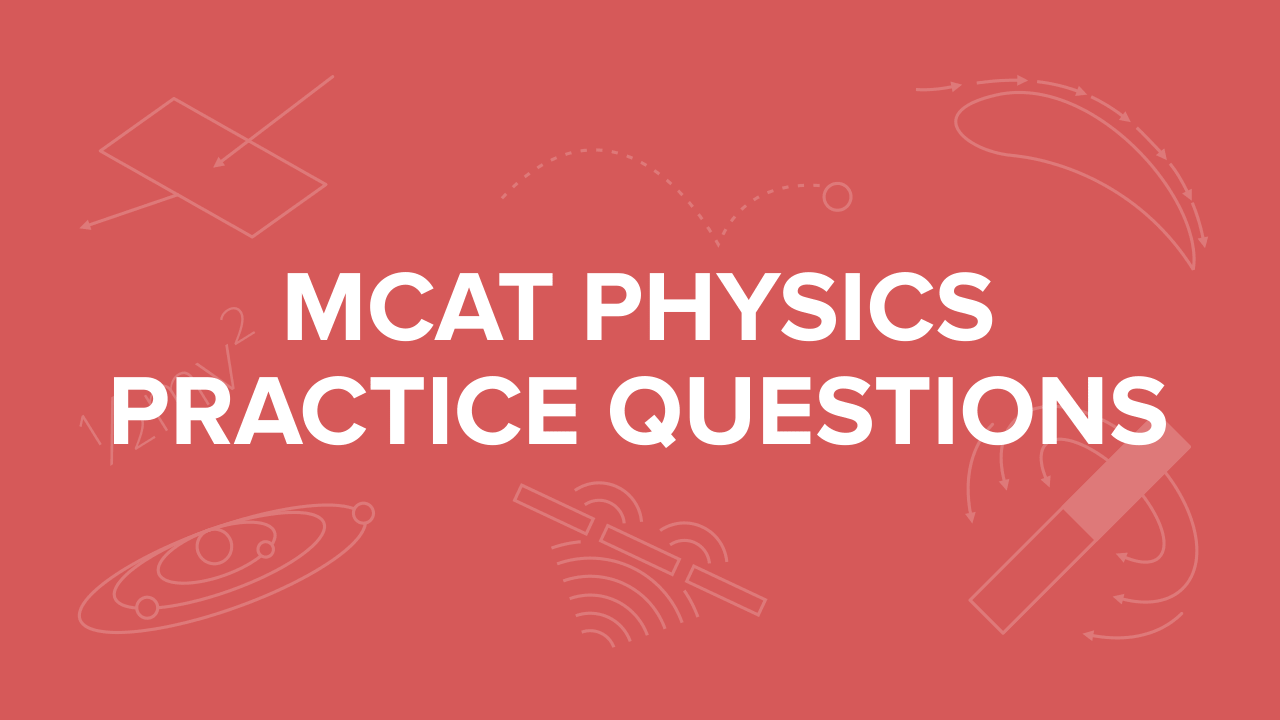Physical Address
Practice, practice, practice! By taking physics practice problems, you’ll learn how the test-writers like to ask questions, the high-yield material that is likely to show up on your exam, and what information you should spend your valuable time studying.
MCAT Physics Practice Questions
Prepare for MCAT Physics questions with practice problems

Introduction
MCAT Physics Practice Passage #1
MCAT Physics Practice Passage #2
MCAT Physics Practice Passage #3
MCAT Physics Practice Questions (Standalone)
Introduction
The MCAT will be the longest and most difficult test that the majority of premeds take on their way to medical school. Within this beast of an exam, the MCAT includes difficult topics like physics, organic chemistry, and general chemistry.
Physics makes up 25 percent of your chemistry/physics section, give or take 5 percent. So, your exam will likely have between 12 and 18 physics questions. To put this in perspective, however, the entire exam is 230 questions, so physics makes up only around 5 to 7 percent of your entire exam.
Physics is a vast topic, but we’ve shown that it only shows up on a small percentage of your exam. So, how can you achieve a great MCAT score and ace physics questions without spending a disproportionate amount of time studying MCAT physics? In other words, how are you supposed to learn MCAT physics without sacrificing your performance in other sections that will yield more points, like MCAT psychology and sociology?
Practice, practice, practice! By taking physics practice problems, you’ll learn how the test-writers like to ask questions, the high-yield material that is likely to show up on your exam, and what information you should spend your valuable time studying.
Use the following three passages and five standalone questions to test your ability to apply your physics knowledge to real, MCAT-style passages. You’ll notice that each explanation for the passage-based questions has suggestions for what you should review if you miss a question. Good luck!
Is the Physics questions on the MCAT anything like the AAMC Physics Q pack?

Hey guys so I’m getting like 50% correct on the Physics Qpack but when I took the AAMC FL2 two weeks ago I got a 129 on the section so I don’t understand the disconnect. I’ve noticed that the questions on the AAMC FL2 asks Physics questions that, if passage based, are largely biologically relevant. If they are not biologically relevant, they are really easy discrete questions. This is very different from the Physics Q pack.
What’s with the disconnect?
EDIT: Also, should I be super concerned and push back my July 7 test date?
GreenDuck12
Full Member
Joined Mar 30, 2014 Messages 2,142 Reaction score 2,320
Hey guys so I’m getting like 50% correct on the Physics Qpack but when I took the AAMC FL2 two weeks ago I got a 129 on the section so I don’t understand the disconnect. I’ve noticed that the questions on the AAMC FL2 asks Physics questions that, if passage based, are largely biologically relevant. If they are not biologically relevant, they are really easy discrete questions. This is very different from the Physics Q pack.
What’s with the disconnect?
EDIT: Also, should I be super concerned and push back my July 7 test date?
A 129 on CP is solid! You have another 6 weeks till test day so you’re in good shape. The disconnect is the q pack is comprised of questions from the previous iteration of the mcat (pre-2015) which was not nearly as interdisciplinary as the current mcat. Use the q pack to find content gaps and make flash cards but don’t focus on the percentage too much. As long as your practice test scores are in good shape you shouldn’t worry much.









